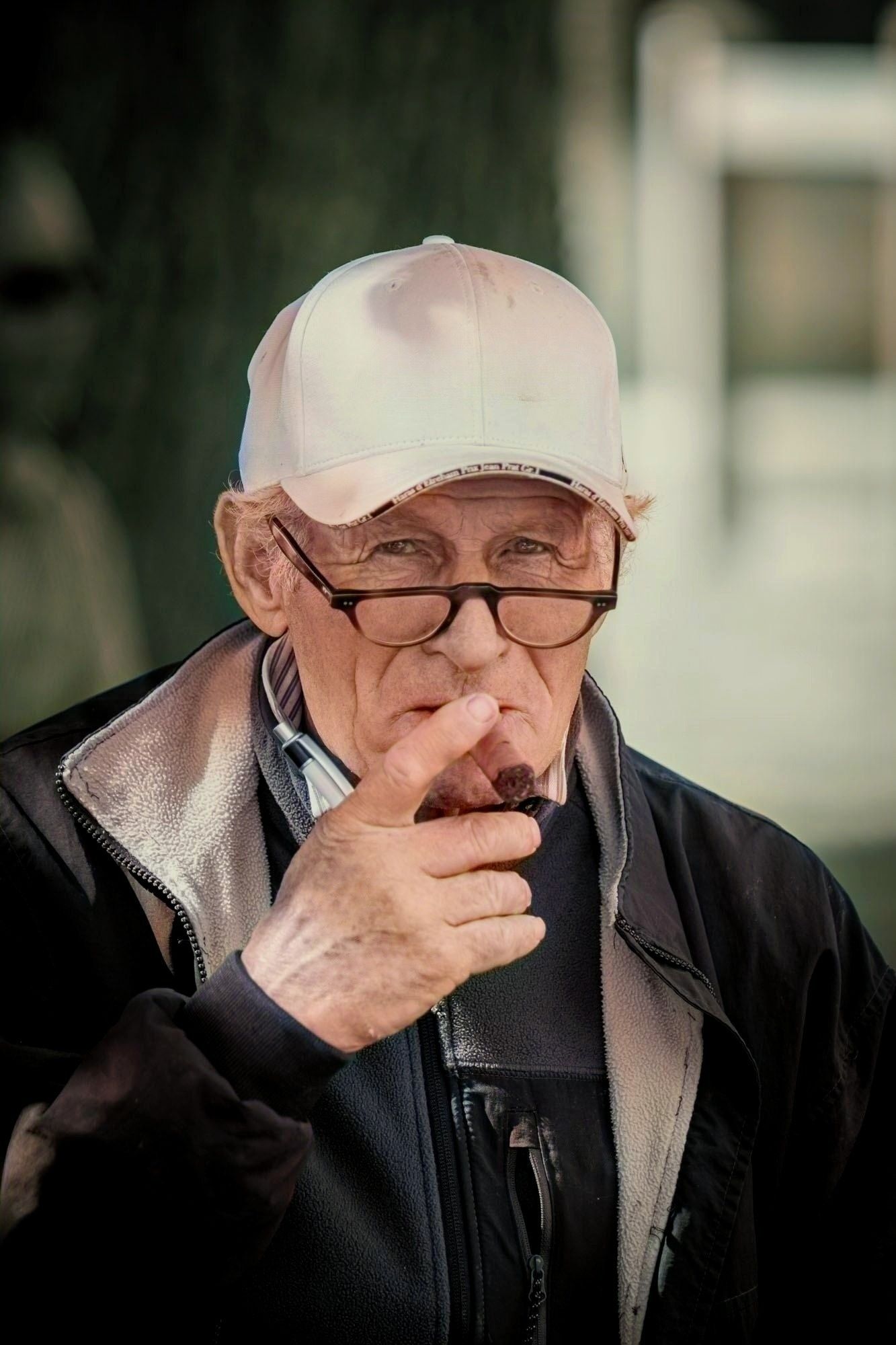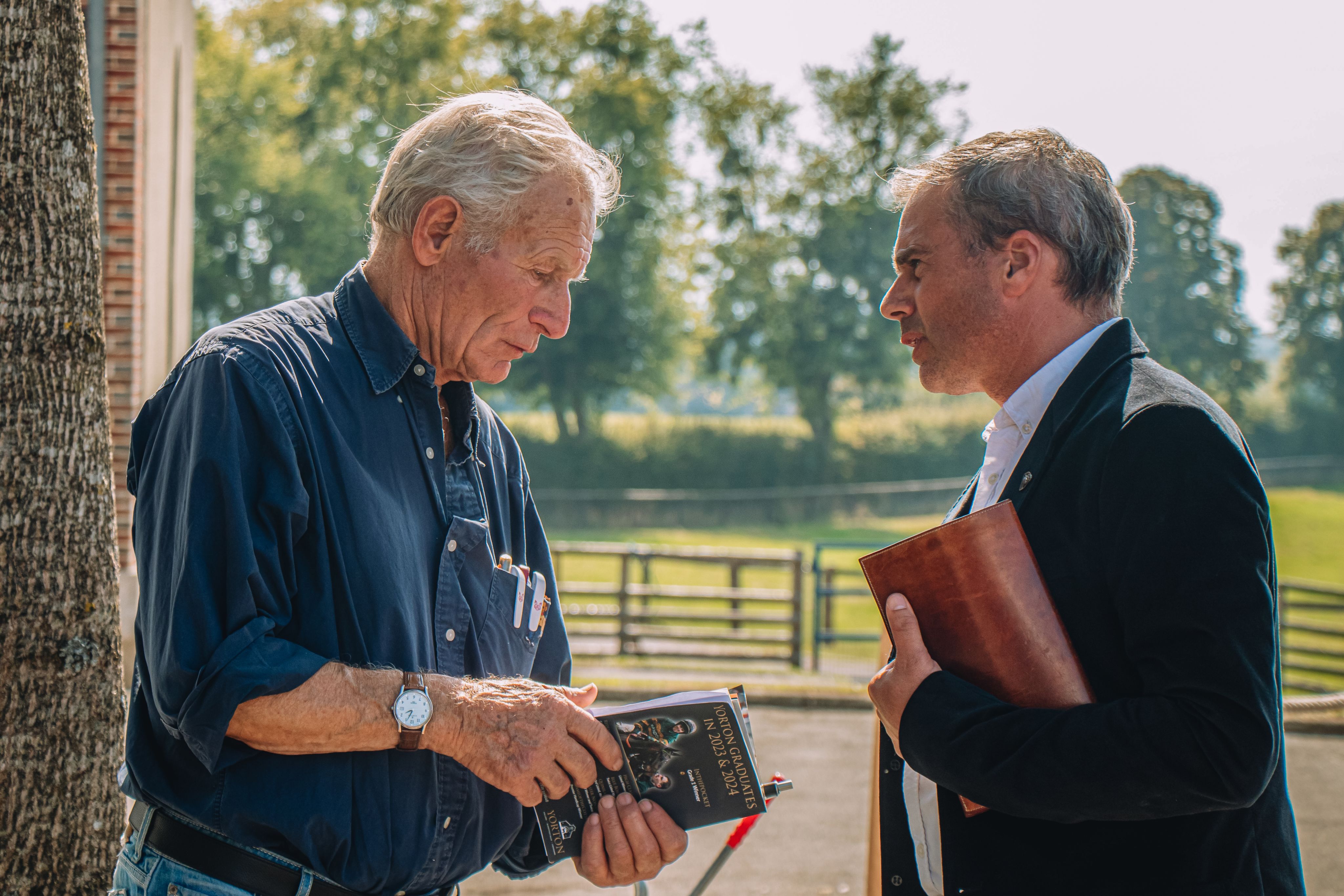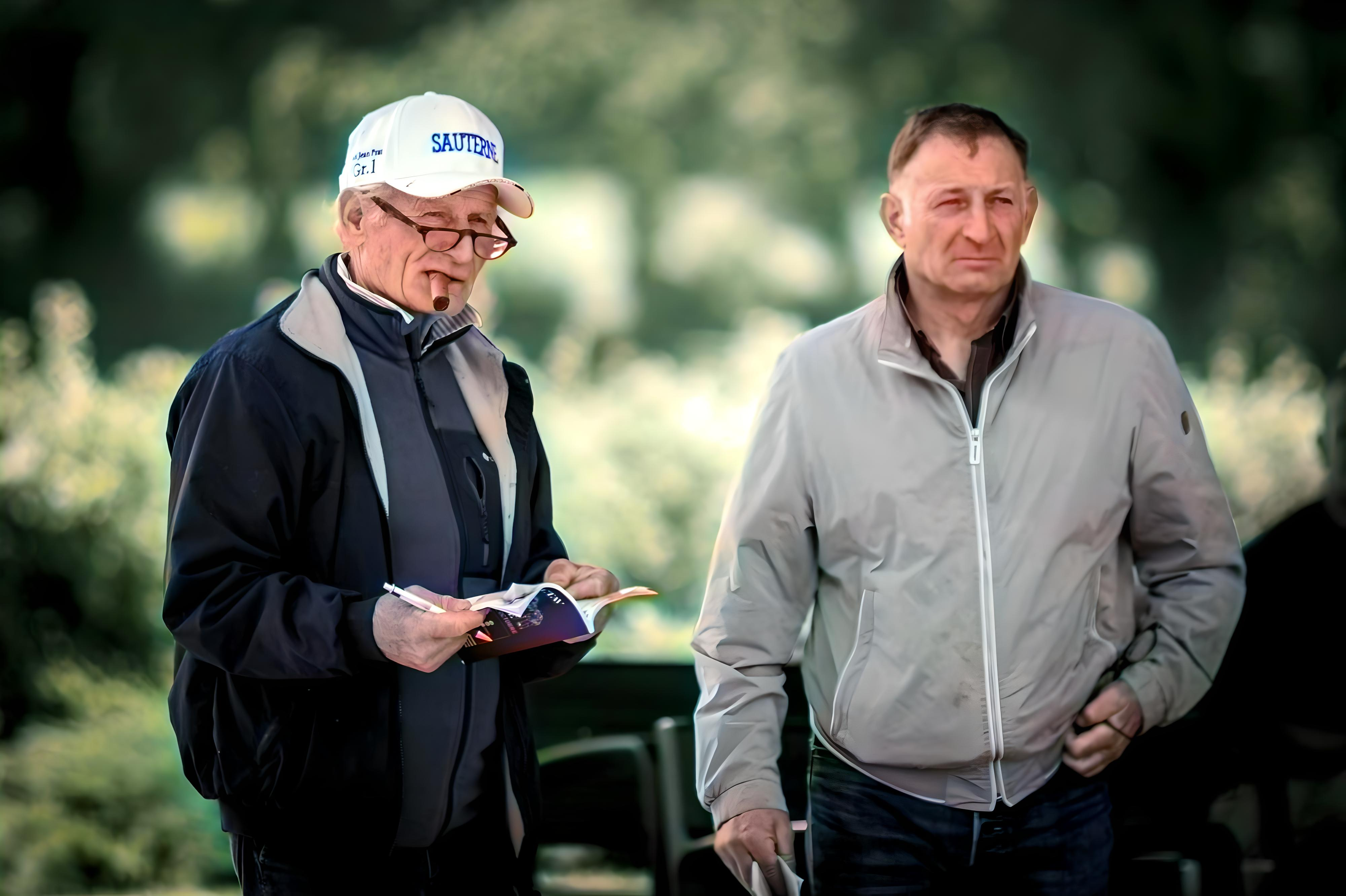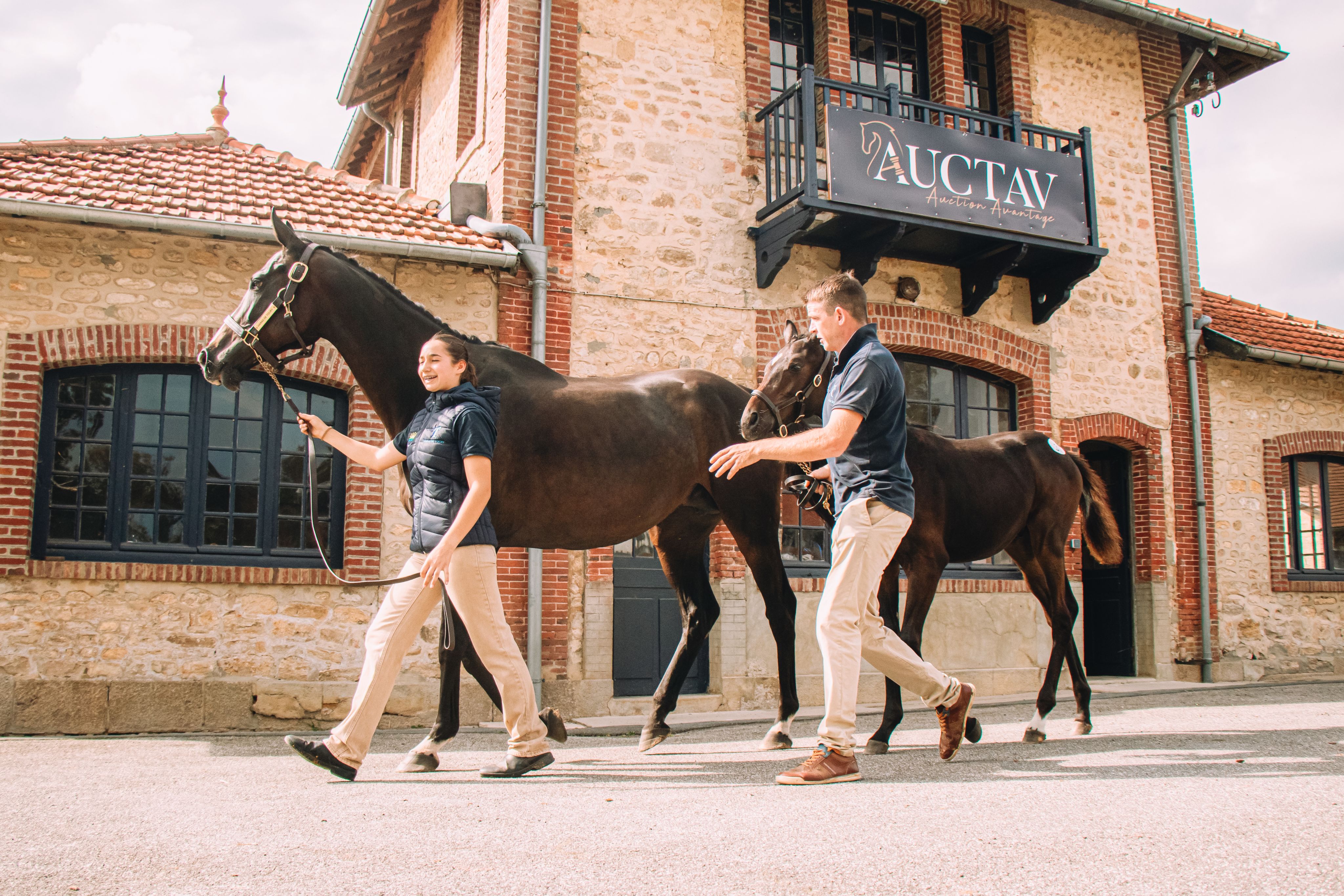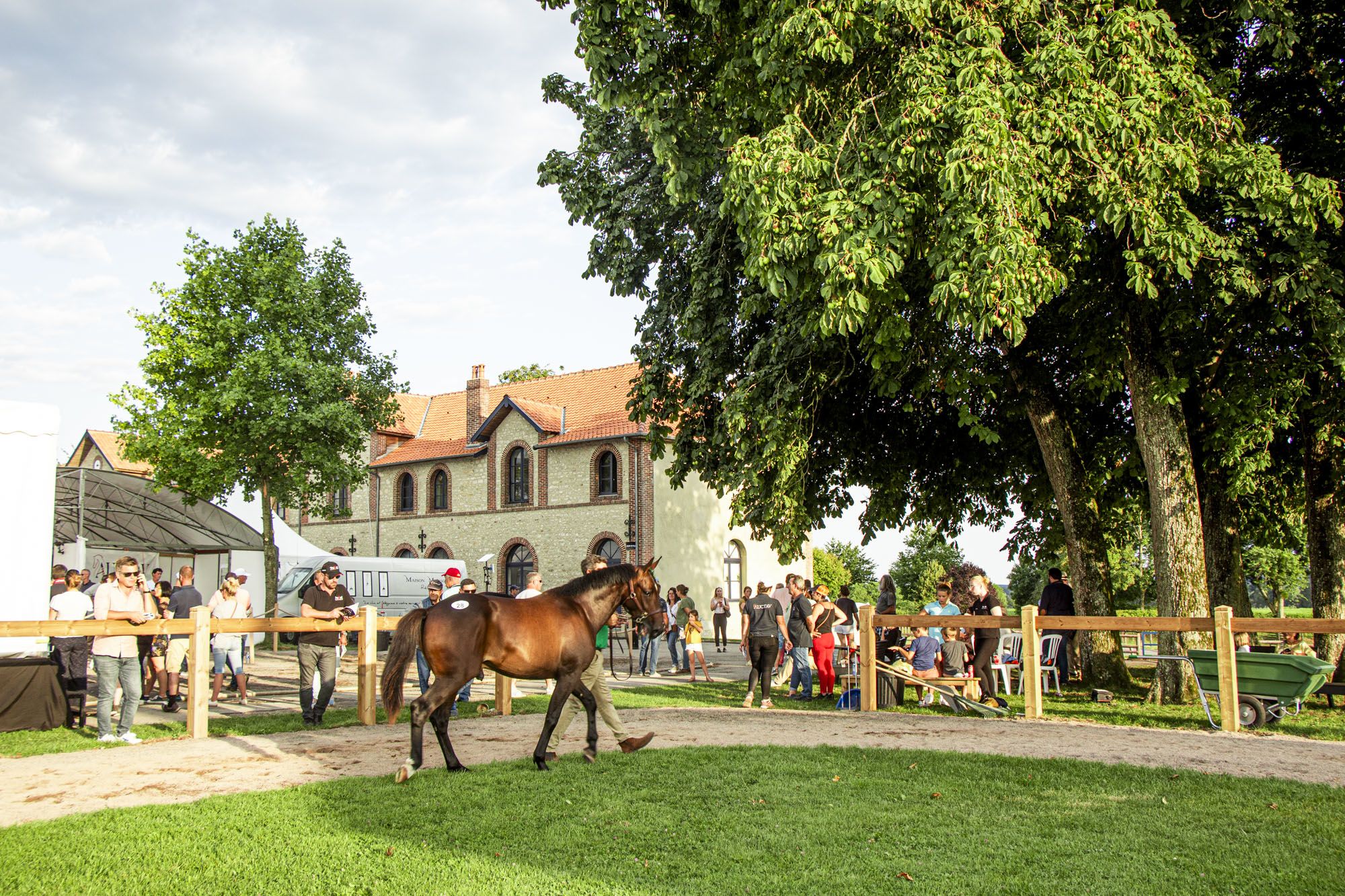Retirement auction
ON WEDNESDAY, August 13 at Haras de Bois Roussel, Auctav is organising an historic private sale that will feature over 100 thoroughbreds and will include foals, broodmares, yearlings, as well as horses in training, both Flat and NH, as part of the dispersal of Jean-Pierre Dubois’ stock, writes Adrien Cugnasse.
Headlining the sale is Sofia (Kingman), a full-sister to the 2024 Goup 1 Prix de Diane heroine Sparkling Plenty.
She will be sold in-foal to Starspangledbanner, and the seven-year-old is from the family of Noble Truth (Kingman), Stacelita (Monsun), Sauterne (Kingman), and Soul Stirring (Frankel).
Also catalogued are Frisella (Frankel), the dam of the stakes-placed Grand Scoop (No Nay Never), who is in-foal to Blue Point, two half-sisters to the Group 2 Prix de Sandringham winner Purplepay (Zarak), Salerne (Charm Spirit), a half-sister to the Group 1 Prix du Moulin heroine Sauterne (Kingman) and in-foal to Auguste Rodin, the multiple Listed winner Blue Wings (Wings Of Eagles) carrying to Ace Impact, and Helenium (Frankel), a half-sister to the Royal Ascot star and late sire Calyx, carrying to Kingman.
“This is an historic session,” acknowledges Auctav’s general manager, Arnaud Angéliaume.“We are honoured to host the private sale of Jean-Pierre Dubois.
“He is a man whose life has been an extraordinary human and professional journey. He has shaped racing in France and around the world, in both Flat, jumps and trotting racing.”
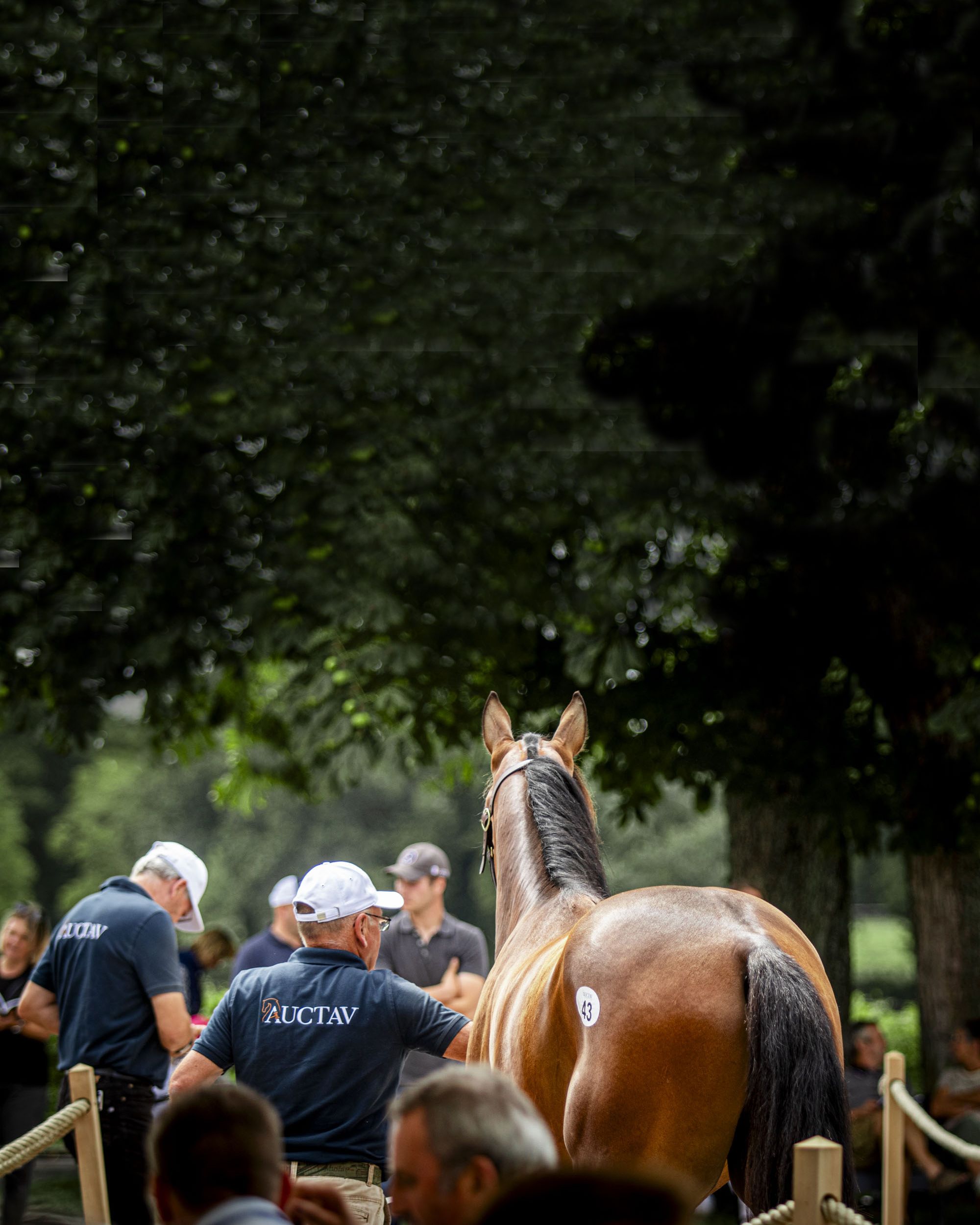
THE NAME JEAN-PIERRE DUBOIS is almost completely unknown outside of France, but he is a true racing legend.
The news of Dubois’ major dispersal caused a sensation in France, as the man embodies the success of a self-made individual who started from nothing and reached the summit of trotting, Flat, and jump racing.
Legend has it that he arrived in Normandy from his native Brittany in the 1950s with almost nothing – just a moped and two modest trotters.
Now, 70 years later, Dubois is one of the largest landowners in Normandy. As a trainer, driver, breeder, and owner, he has won all the major trotting races, and is considered in the sport the French equivalent of John Magnier.
In Flat racing, he has produced two Prix de Diane (G1) winners,
Stacelita and Sparkling Plenty, as well as the Classic-winning Olmedo, Sauterne, winner of the Prix du Moulin (G1), and Noble Truth, who took the Jersey Stakes (G3).
Over jumps, he has bred numerous Grade 1 winners, including Feu Follet and Salvator Mundi, and it was Dubois who discovered and first trained the legendary Kotkijet, widely regarded as
the best steeplechaser ever seen in France.
Incredibly, Dubois is still driving in trotting races even in 2025.
His latest victory dates back to August 2024 – when he was already 84 years old!
An enigma
Very few people can truly claim to know Jean-Pierre Dubois. In any case, he is almost impossible to interview.
Not because he is unfriendly with journalists, but rather because he is far too clever to ever say what he really thinks. His favorite answers to journalists’ questions are always the same: “You know, I’m just a small breeder, a simple farmer who’s been very lucky.” Or, alternatively: “And what do you think? What’s your opinion?”
Nevertheless, one person did know him well: the trotting trainer Pierre-Désiré Allaire, who passed away in 2020. He was born in the house next door to Dubois, and throughout their lives the two men were rivals – and sometimes partners as well.
In the early 2000s, Allaire explained: “He’s made differently. Not like the rest of us. He doesn’t have the same constitution as you or me.
“When he was three and a half, after being scolded by his father, he grabbed a suitcase and ran away from home to go to his grandfather’s house a few kilometers away. The German soldiers who saw him laughed, my mother brought him back to his parents.
“But what a show of independence for such a young child! Jean-Pierre was always ahead of his time, and even at 13 he was as mature as a grown man.
“He’s not made like others. Maybe he has Cossack blood! With those blue eyes of his, he looks like one of those horsemen from the steppes…”
He’s retiring… almost!
When interviewed by the regional newspaper Ouest France, Dubois stated plainly: “I’ve decided to stop… Age is catching up with me. We’re selling everything.”
But reading between the lines, it means that Dubois, who turned 85 in July, will be merely stepping away from large-scale breeding and that he will retain a small number of horses he holds particularly dear.
It is hard to imagine, for example, the great breeder parting with Speralita by placing her in a sales catalogue.
Dubois also owns horses in partnership with friends, associates, or family members. And all these horses, such as Sparkling Plenty, who fetched £5 million at the 2024 Goffs London Sale in a private sale after the auction finished, and then €5 million in 2024 at the Arqana Breeding Stock Sale, will not be going through the Auctav sales ring.
Nonetheless, with the sale set to be staged just days before the Arqana August Yearling Sale, a large crowd is expected at Haras de Bois Roussel, especially as Dubois is selling a large number of fillies from his top families.A very different culture from Flat racing
In Ireland and England, trotting is almost completely unknown, but in France, it is the number one racing sport in terms of foal production (over 14,000 trotting foals as against 8,000 thoroughbreds) and number of races with more than 11,000, which is twice as many as Flat and jump races combined.
Trotting is a tough world, largely because it is common for one person to wear all the hats: owner, trainer, breeder, and race driver. Dubois got to the head of the sport thanks to his extraordinary intuition.
Trotting is a fairly traditionalist sport, at present, and for much of its history, the French stud book is closed, meaning it is impossible to use non-French blood.
However, in the 1980s, there was a brief opening that allowed the use of
US bloodlines. At the time, Dubois, despite not having the money, shipped his best mares by plane to be covered by the top stallions standing in the US.
He was one of the very few to take this risk. It was a bold move that paid off – the stud book closed again a few years later.
But with the injection of US speed into his stock, Dubois stood the best trotting stallions in France for decades, much like Coolmore made its mark by sourcing sons of Northern Dancer from the US.
This decisive choice and success allowed Dubois to buy stud farms in Italy, the US, and all over France.
And in Italy, he bred Varenne, who is the trotting equivalent of Frankel.
Traditionally, trotting people are less inclined to sell their horses, and there isn’t really an international market as in the thoroughbred world.
As a result, trainers and breeders can work as they please without worrying about an owner’s or sale ring opinion.
So, perhaps as to be expected, Dubois bought that view to his Flat racing operations – in 2021 he did something quite astonishing, perhaps common in trotting but unheard of in Flat racing, he began using the young thoroughbred stallion Chachnak as a sire midway through his racing career!
A dual Group winner at three in 2020, Chachnak covered 49 mares in 2021. He then went on to win another race as a five-year-old in 2022… the same year he covered 30 mares!
He’s not cut from the same cloth
In France, absolutely everyone in racing has a story involving Dubois.
Apparently, at the age of four, he noticed a charabanc (wagon) with a horse harnessed in the courtyard of the family farm. The young child climbed on board and released the brake. What followed was a wild chase through the streets of Dinan, with his parents frantically pursuing the runaway carriage – and all under the eyes of the occupying German army.
His entire life has been about disruption and an unrelenting drive to forge his own path.
Some recall flying with him to Kentucky to buy mares at Keeneland, but, instead of resting after the flight, Dubois spent the entire night testing trotters on a floodlit track!
Even after amassing a fortune, he would still mow his own hay through the night after a day at the races.
A few years ago, an admiring young breeder approached him at the sales and asked if he had a NH broodmare for sale. Dubois replied: “Sure, of course – what colour would you like?”
Alongside his son Jean-Etienne, Dubois Snr was part of the team of mad pinhookers who bought Onesto for $535,000 at the Ocala Breeze-Up Sale.
Who buys a two-year-old for over half a million hoping to resell it on the racetrack?
And yet, the brave move and investment paid off: Onesto went on to win the Grand Prix de Paris (G1), and finished on the podium in the Irish Champion Stakes (G1) and the Prix de l’Arc de Triomphe (G1).
A special connection with the Wildensteins
In the 1980s, the Flat racehorse owner Daniel Wildenstein decided to enter the trotting world, but, given as he was then a 70-year-old, he didn’t want to waste time building a breeding operation from scratch.
The problem for Wildenstein was that, as already mentioned, unlike in Flat racing, the tradition for trotting people is not to sell horses – the one exception being as might be expected Dubois, who had always been open to trading.
So for years Dubois sold entire generations of horses to Wildenstein, allowing the latter to win major international trotting races.
During this period, Dubois also managed to acquire well-bred thoroughbred fillies from Wildenstein – and he became captivated by the challenge.
Over the past few decades, the money he earned from trotters enabled him to invest seriously in Flat racing.
It is therefore no coincidence that Olmedo, Parnac, and the majority of his top thoroughbreds come from Wildenstein bloodlines.
Olmedo, Sparkling Plenty, Sauterne, and Stacelita all descend from the same mare in the Wildenstein broodmare band – Southern Seas, who is in the pedigree’s back fifth generation.
Their sixth dam Schönbrunn was purchased by Wildenstein from Gestüt Schlenderhan.
This famous “S” line is so beloved by Dubois that he never stopped buying fillies from it wherever and whenever the opportunity arose.
A true dynasty
Today, Dubois’ children and grandchildren play a major role in French racing, both in trotting and on the Flat.
His son Jean-Philippe Dubois scouted Martinborough in Japan and, after the stallion’s promising beginnings in NH breeding in France, he was sent to Ireland to stand at Capital Stud.
His grandson Louis Baudron pulled off quite a coup when partnering with his grandfather to bring Triple Threat back from the US – the pair again drawn by the appeal of German bloodlines.
In 2016, Triple Threat was struggling to perform at Group level and nearing the end of his career.
Using their own mares and training the resulting offspring, the Dubois clan took the risk of proving him as a sire.
It paid off as he quickly produced talented jumpers – ultimately leading to his sale for big money in Ireland.
Auctav: the venture of Louis Baudron and his partners
A few years ago, Dubois, who is referred to as “Le Chef” throughout the French countryside, purchased the legendary Haras du Bois Roussel.
This historic stud had once housed the breeding operations of icons such as Countess Margit Batthyány and the Wildenstein family.
When his grandson Baudron decided to launch his own sales agency Auctav, alongside several partners including Arnaud Angéliaume, the family patriarch agreed to lease Haras du Bois Roussel for its in-person public auctions and its HQ, the sale house originally starting out as just an online venture.
Since its first sale in March 2021, Auctav has carved out a position within the French market, particularly in niche segments.

